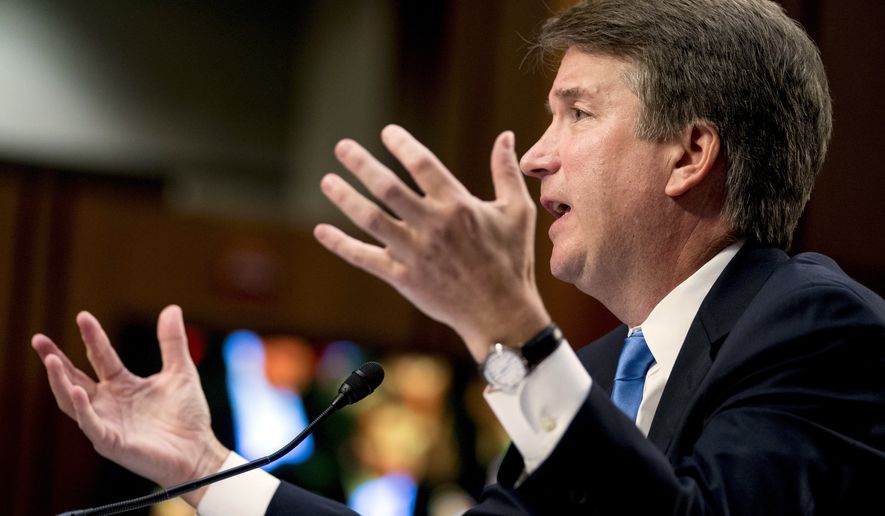Judge Brett Kavanaugh defended his decision to slow an illegal immigrant juvenile’s quest to get an abortion, telling senators Wednesday that he was following precedent in ruling the government didn’t have to immediately grant her an “abortion on demand.”
The ruling is perhaps the most controversial of Judge Kavanaugh’s recent decisions from his 12 years on the federal circuit court in Washington, involving the collision of abortion rights and rights of illegal immigrants.
The Trump administration argued it would break the law if it facilitated the abortion, and pleaded for more time to turn the teen girl over to a sponsor who would be able to assist her in making her final decision.
Judge Kavanaugh sided with the government, ruling that extra time didn’t run afoul of Roe v. Wade or follow-up Supreme Court rulings establishing the contours of the national right to abortion.
He was part of a 2-1 majority that initially blocked the girls’ quest for an abortion — but the case was quickly overturned by the full appeals court sitting en banc. The Supreme Court later stepped in and vacated the ruling, without deciding the case.
“This is a 17-year-old, by herself, in a foreign country in a facility where she is detained and she has no one to talk to, and she’s pregnant. Now that is a difficult situation,” he said, adding that the case had sped through the courts. “I did my level best in an emergency posture.”
Judge Kavanaugh was testifying during his confirmation hearing with the Senate Judiciary Committee.
Sen. Richard Durbin, Illinois Democrat, said he was troubled by the ruling, saying the judge seemed to be imposing extra conditions on the illegal immigrant, who’d already gotten a judge’s order in Texas approving the abortion.
“This young woman complied with every legal requirement,” he said.
Judge Kavanaugh said that if the illegal immigrant had been an adult her right to an abortion would have been unquestioned. But she was a juvenile and in government custody, giving the government more of an interest in the outcome.
He said it was similar to parental consent or notification provisions, which the Supreme Court has explicitly ruled legal.
• Stephen Dinan can be reached at sdinan@washingtontimes.com.




Please read our comment policy before commenting.